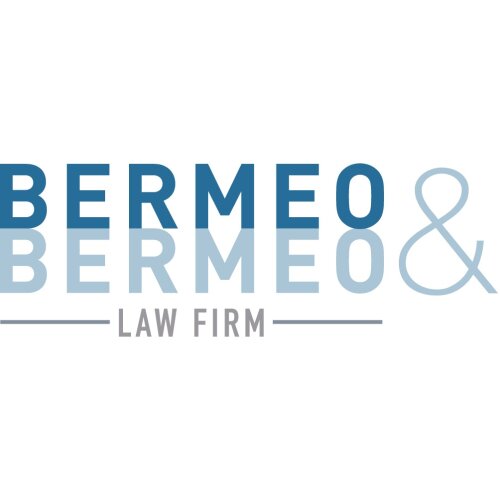Best Due Diligence Lawyers in Quito
Share your needs with us, get contacted by law firms.
Free. Takes 2 min.
List of the best lawyers in Quito, Ecuador
About Due Diligence Law in Quito, Ecuador
Due Diligence is a legal principle that aims to assess and investigate the legal, financial, and operational aspects of a business or transaction. In Quito, Ecuador, Due Diligence is crucial to ensure compliance with local laws and regulations, protect investments, and mitigate risks. It involves conducting thorough investigations, reviewing documentation, and analyzing relevant information to make informed decisions.
Why You May Need a Lawyer
There are several situations where seeking legal assistance in Due Diligence is essential:
- Buying or selling a business or property
- Entering into partnerships or joint ventures
- Conducting financial transactions or investments
- Assessing compliance with local regulations and laws
- Dealing with potential legal issues or disputes
Local Laws Overview
When conducting Due Diligence in Quito, Ecuador, it is important to consider the following key aspects of local laws:
- Property Laws: Understanding property rights, ownership, and any existing liens or encumbrances.
- Corporate Laws: Familiarizing oneself with company registration, shareholder rights, and any legal obligations.
- Environmental Laws: Assessing compliance with environmental regulations and any potential liabilities.
- Labor Laws: Reviewing employment contracts, labor rights, and compliance with labor regulations.
- Tax Laws: Evaluating tax liabilities, exemptions, and compliance with tax obligations.
Frequently Asked Questions
1. What is the purpose of Due Diligence?
Due Diligence aims to assess and verify the legal, financial, and operational aspects of a business or transaction to reduce risks, protect investments, and ensure compliance with laws and regulations.
2. How long does the Due Diligence process usually take in Quito, Ecuador?
The duration of the Due Diligence process can vary depending on the complexity of the matter, the availability of information, and the cooperation of the parties involved. It is advisable to consult with a lawyer to determine a realistic timeframe for your specific case.
3. What documents are typically reviewed during Due Diligence?
Documents that may be reviewed during Due Diligence include financial statements, contracts, licenses and permits, tax records, environmental assessments, property deeds, employment agreements, and any other relevant documentation pertaining to the transaction or business.
4. What are the potential risks of not conducting Due Diligence?
Not conducting Due Diligence can lead to unforeseen risks such as compliance issues, legal disputes, financial losses, unanticipated liabilities, or unfavorable terms in a transaction. It is crucial to thoroughly investigate and assess all relevant aspects before proceeding.
5. How can a lawyer assist with Due Diligence?
A lawyer experienced in Due Diligence can provide legal advice, conduct comprehensive investigations, review documentation, identify potential risks or issues, negotiate terms, and ensure compliance with local laws. They play a vital role in safeguarding your interests and assisting you throughout the Due Diligence process.
Additional Resources
For further information and assistance related to Due Diligence in Quito, Ecuador, consider contacting the following resources:
- Quito Chamber of Commerce
- Quito Bar Association
- Ministry of Economic and Social Inclusion of Ecuador
Next Steps
If you require legal assistance in Due Diligence in Quito, Ecuador, the recommended next steps are:
1. Contact a reputable lawyer or law firm experienced in Due Diligence.
2. Schedule an initial consultation to discuss your specific situation and requirements.
3. Provide all relevant documentation and information to your lawyer.
4. Collaborate with your lawyer throughout the Due Diligence process, asking questions and seeking clarification when needed.
5. Follow your lawyer's advice and recommendations to make informed decisions and mitigate risks.
Lawzana helps you find the best lawyers and law firms in Quito through a curated and pre-screened list of qualified legal professionals. Our platform offers rankings and detailed profiles of attorneys and law firms, allowing you to compare based on practice areas, including Due Diligence, experience, and client feedback.
Each profile includes a description of the firm's areas of practice, client reviews, team members and partners, year of establishment, spoken languages, office locations, contact information, social media presence, and any published articles or resources. Most firms on our platform speak English and are experienced in both local and international legal matters.
Get a quote from top-rated law firms in Quito, Ecuador — quickly, securely, and without unnecessary hassle.
Disclaimer:
The information provided on this page is for general informational purposes only and does not constitute legal advice. While we strive to ensure the accuracy and relevance of the content, legal information may change over time, and interpretations of the law can vary. You should always consult with a qualified legal professional for advice specific to your situation.
We disclaim all liability for actions taken or not taken based on the content of this page. If you believe any information is incorrect or outdated, please contact us, and we will review and update it where appropriate.













